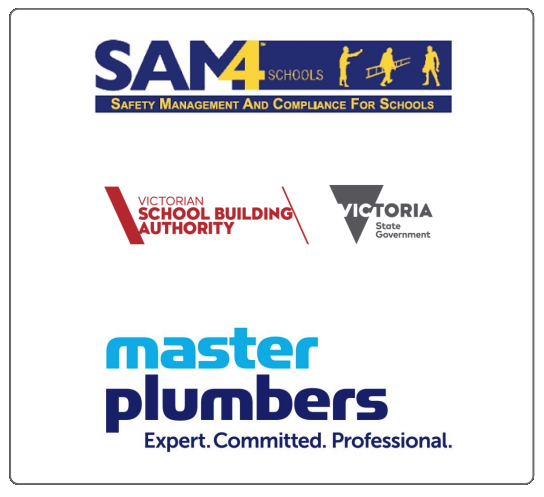Dependable Factory Plumbers Melbourne
Commercial plumbing and drainage services at the industrial level requires more than just a good set of hands. To get the job done right, commercial factory plumbers often require their own set of accreditations. This may involve knowledge of industrial hazards, and the relevant training to mitigate such risks. If you need factory plumbing in Melbourne, it helps to work with a commercial plumber with the right experience and skills to get the job done.
As we work with a wide variety of clients from different industries, our team of factory plumbers are experts when it comes to understanding what went wrong with your plumbing and drainage systems.
Look to our team if you need factory industrial plumbing in Melbourne metropolitan areas. Our team of factory plumbers will arrive on-time, equipped with the right tools for plumbing repairs and deliver solutions that help keep your facility running at its operational capacity. Keep things running on schedule with a little help from our factory plumbers. You never know when it might come in handy to keep our number in your list of emergency contacts.
Experienced and Professional Factory Plumbing Melbourne
Whether for emergency commercial plumbing or for emergency plumbing services, you can always count on VIP Plumbing. We are among factory plumbers Melbourne factory managers recognise, and provide a reputable service that aims to help keep your business moving the way it should. Our expertise is comprehensive, and we are often available at short notice to help with any emergency plumbing needs. If you need factory plumbing Melbourne business owners regard as highly professional, you need to look no further than VIP Plumbing.
We operate across the wider Melbourne metropolitan area and bring a wealth of experiences from working across a diverse range of industries. No matter your need for commercial factory plumbing, we can help. Among the range of trade specialities, we are adept at resolving issues to do with:
- Gas Plumbing
- Pipeline Maintenance
- Installations and Repair
- Hot Water Systems
- Metal Roof Plumbing to name some examples
Frequently Asked Questions
Ongoing plumbing maintenance helps to reduce the chance of plumbing emergencies and extend the longevity of plumbing fixtures. Some examples of this include:
- Regular gutter and roof cleaning prevents roof degradation and minimises chances of leaks. This is most evident during heavy rains as clean gutters and roof areas allow for proper drainage.
- Carrying out audits to plumbing fixtures helps identify small plumbing problems before they become plumbing emergencies. This includes identifying any splits or deterioration on seals and rings in taps and toilets and carrying out minor repairs before more major works are required.
Licensed plumbers have undergone relevant training and testing to ensure they have the necessary skills and knowledge to undertake plumbing work safely, effectively and, most importantly, in a compliant manner. Engaging a licensed plumber mitigates other legal risks as well including warranty, insurance and liability. Most of all however, licensed plumbers bring with them a wealth of expertise and experience, reducing the risk to the existing plumbing systems and getting the job done right the first time!
The three most common myths we see a lot are:
- Flushable wipes are safe: despite the marketing around them, these disposable wipes should never be flushed down the toilet. These wipes do not break down as easily as toilet paper and as such contribute to blockages.
- Running water will dispose of grease: running hot water does not prevent grease or kitchen fats poured down the sink from congealing and clogging pipework. It’s best to dispose of grease once it has hardened in a container to protect those drains!
- It’s OK to leave a small drip: small issues have the potential to cause big problems. Small leaks or drips can waste a significant amount of water over time and may indicate a larger problem.
There are lots of ways that plumbing can aid in conserving water, reducing energy consumption and minimising pollution. Some include:
- Fix leaks promptly– even small leaks can waste a lot of water over time when left.
- Use good quality, water-efficient plumbing fixtures– replace old toilets, taps and showerheads with new, good quality fixtures that help save water without compromising performance.
- Use rainwater- installing rainwater tanks can harvest rainwater from roofs and gutters to be able to use throughout your property.
- Be mindful of what goes down the drain– ensure that hazardous materials are disposed of correctly and make the switch to eco-friendly chemicals when cleaning to minimise the impact on the environment.
An unusually high water bill is most likely a sign of a leak somewhere in the property. It is important to locate where the leak is coming from and rectify this as soon as possible. Leaks could be coming from plumbing fixtures like taps and toilets or could be from bursts in the pipework.
Other ways to tell if there is a leak is:
- Dripping sounds from inside the walls/ceilings
- Visible wet patches both internally and externally
- Low water pressure
Blocked drains can be caused by a range of things and can affect plumbing fixtures throughout the property.
Blockages can be caused by a buildup of natural matter, hair, debris or ingress of tree roots to name a few. It is super important to ensure that only appropriate materials are flushed down the drains to prevent blockages- no paper towels, sanitary items, cooking fats, paints etc. should ever be put down the drain!
Ongoing or repeated blockages can be a sign of a blockage further down the drains at the property that may need to be cleared using a sewer machine or jet wash.
Due to the many, MANY different types of hot water services and the different environments they are kept in, there is no one stock standard answer. Hot Water Services can last anywhere from 6-15 years, however some can last up to 20 years!
Ongoing maintenance maximises the longevity of your hot water service. Maintenance includes regular cleaning of the strainers and filters, removing any sediment build up and checking for signs of corrosion or leaks.
Some plumbing tasks can be carried out by someone at the property without needing to call a plumber, including plunging a toilet. However, if the blockage does not clear after plunging or is recurring, it is best advised to get a plumber out to assess the situation as more involved works or speciality equipment may be required.
Whether it is unblocking a toilet or changing over taps, it’s important to engage a professional if there is ever any doubt to ensure further damage isn’t caused!
Get in Touch
Commercial plumbing is among our core trade specialties at VIP Plumbing. We keep a growing clientele of commercial clients, and frequently assist with any need they may have for sewer drain cleaning, and drain maintenance services. No matter the specifics of your request, our team of specialists is always ready for the job. Just call us at 1300 976 050 to see what we can do to help with your sewer and drain cleaning needs. Experience the VIP difference.


